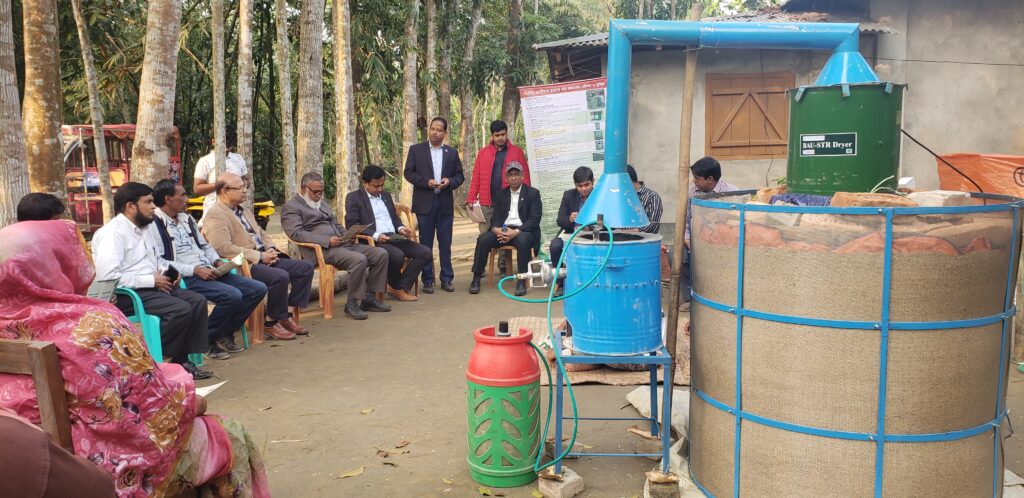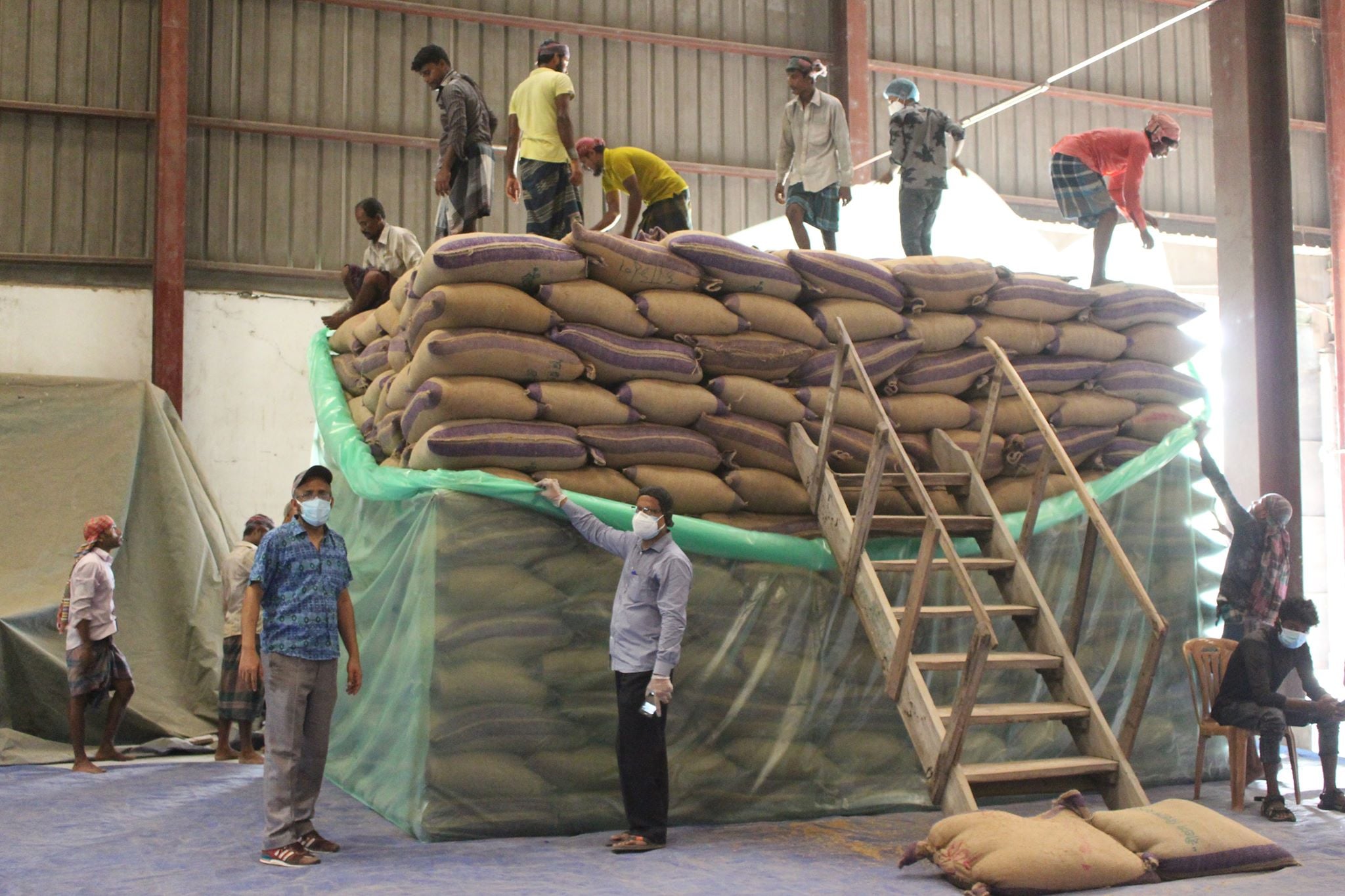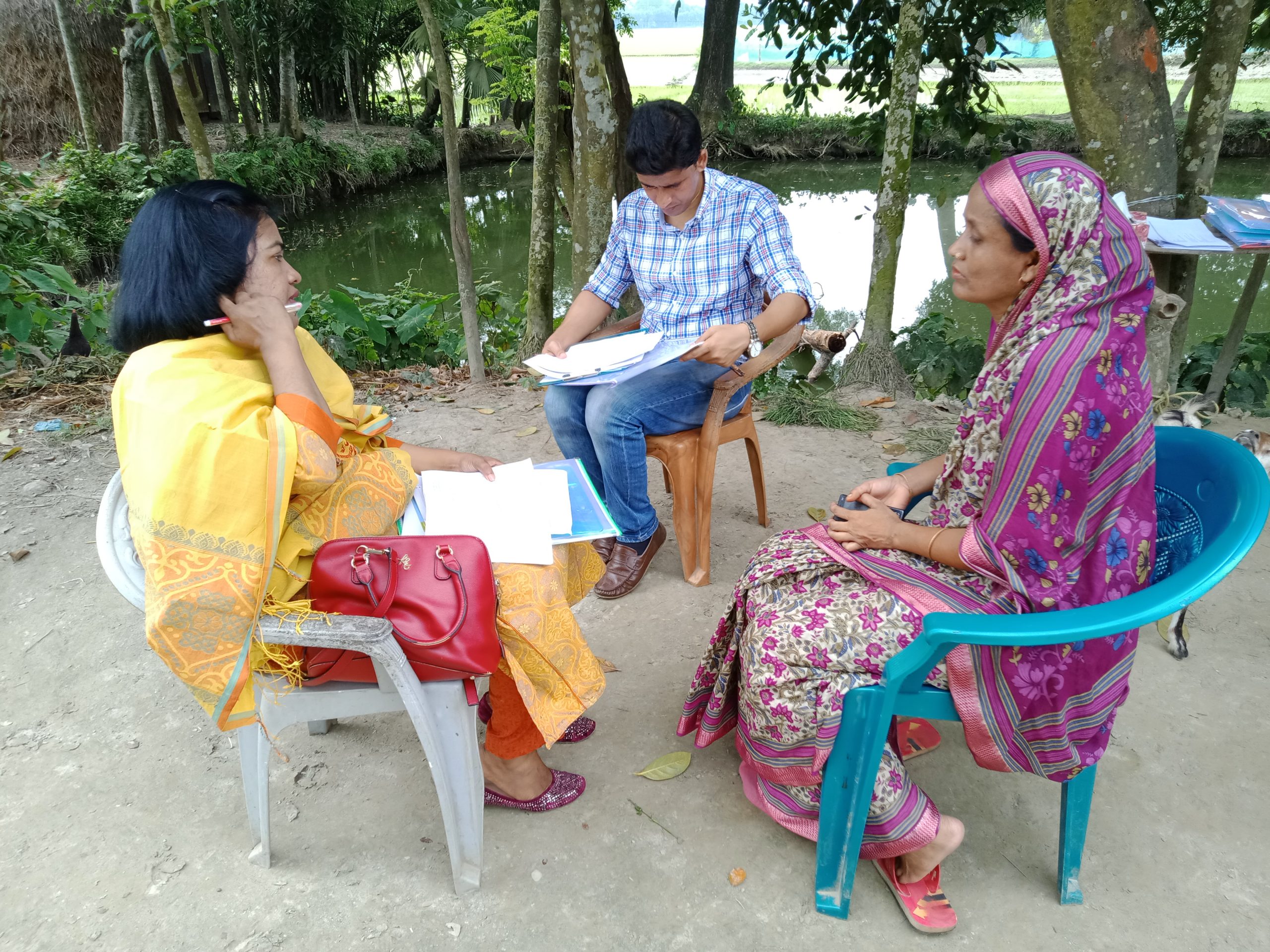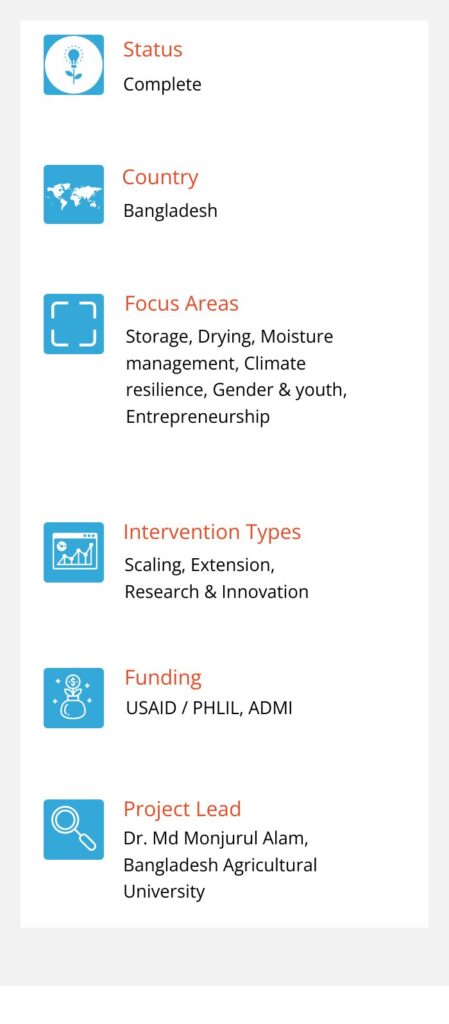
This project is part of the Feed the Future Innovation Lab for the Reduction of Post-Harvest Loss (PHLIL) Phase 2 led by Kansas State University. PHLIL is a strategic, applied research and education program aimed at improving global food security by reducing post-harvest losses in stored product crops. ADMI is a subawardee in the PHLIL project and works with Bangladesh Agricultural University (BAU), University of Illinois-based AgReach, and Assistant Professor Matt Stasiewicz to achieve objectives within the PHLIL project.
The PHLIL-Bangladesh project is led by Bangladesh Agricultural University (BAU) working in cooperation with the ADM Institute for the Prevention of Postharvest Loss. Dr. Md Monjurul Alam is the project investigator, and team members at BAU include Dr. Chayan Kumer Saha, Dr. Md Abdul Awal, Dr. Md Rostom Ali, and Dr. Ismat Ara Begum.
The project works to achieve the following:
Starting in 2019, BAU’s approach to scaling the BAU-STR dryer has included:
In collaboration with small and meso-scale private sector millers, BAU is also developing a recirculating batch grain dryer. Bangladesh has about 14,500 small and medium scale private rice husking mills, which together account for 45% of total paddy production in the country. These millers typically dry grain in open air and face challenges when drying during the rainy Boro and Aus seasons. They report an increasing tendency for farmers to sell “wet paddy”, which is difficult for millers to accept in the absence of mechanized dryers. Enabling traders and millers to dry and store more effectively can help address smallholders’ problem of finding a market at the Boro harvest.
BAU is collaborating with Moti Auto Rice Mill, a small-scale private sector rice milling enterprise, to develop and manufacture a local recirculating batch grain dryer design with locally available parts and components. After conducting a needs assessment, BAU researchers have identified the need for a 12-ton capacity paddy dryer. BAU has established a cost-share partnership with Moti auto rice mill, who will be providing $50,000 to develop the dryer for the mill and install it in on the premises. This dryer will also serve as a research and demonstration site. This activity has potential for manufacturing and scaling batch dryers to other mills, large-scale farmers, and traders.

In Phase 1, BAU focused on farm-level hermetic storage adoption. In Phase 2, the focus has shifted to assessing the effectiveness of using hermetic storage for large-scale seed storage in partnership with Bangladesh Agricultural Development Corporation (BADC) seed processing centers.
In 2019, BAU examined the technical and financial performance of hermetic bags for seed storage compared with BADC’s traditional seed storage system. The experiments used a randomized design and were performed in two seed processing centers in Mymensingh and Tangail over the Boro and Aman seasons with 180 hermetic bags. Due to BADC’s practices of fumigation, spraying, re-drying and re-lotting, experimental results did not indicate insect infestation and showed minor differences in moisture content. However, researchers saw significant changes in seed germination rates, with hermetic storage offering high germination rates of 88% in comparison to 81-85% observed with traditional storage methods.
BAU has helped pioneer the ADMI Grain Handling System technique of pairing hermetic bag use with a community or group level BAU-STR dryer. In 2019, BAU distributed 108 hermetic bags for storing paddy seed among farmers in the Mymensingh, Bagura, and Barishal districts through four farmer groups. In the well-known Maria village, in Bagura district, BAU worked with a women-run farmer group to encourage further adoption of hermetic storage coupled with the dryer usage amongst women farmers.
Farmers received training through multiple programs, refresher trainings, and continued monitoring and technical assistance with the help of a PhD student. In addition to training on technical knowledge of using and maintaining the bags, BAU helped arrange capacity building exercises, such as weighing the grain stored and noting the grain moisture and weight. The Rural Development Activity and Ara Bangla Society collaborated with BAU to identify the groups and conduct trainings.

Led by BAU economist and professor Dr. Ismat Ara Begum, BAU implemented three initiatives in 2019 to integrate gender considerations into the project with technical advice from AgReach.

ADM Institute for the Prevention of Postharvest Loss
1301 W. Gregory Dr.
60 Mumford Hall
Urbana IL 61801
+1 217-333-5115